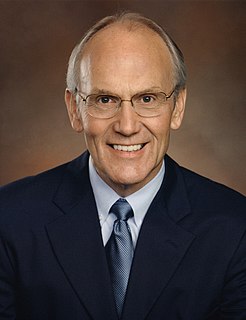A Quote by Murray Bookchin
As for the workers' movement, I find that I reach workers more easily as neighbors than I do standing outside the factory despairingly giving out a leaflet telling them to take over, say the Ford plant.
Related Quotes
Union membership is not the sole guarantor of job security and a living wage, but nonunion factory workers do not enjoy the same protections as union workers. They're subject to exploitation, underpayment and lower standards of workplace safety - which is also often the case for manufacturing workers outside the United States.
I don't think people who are supporting the food movement ever want to be in a position where they are opposing the workers who are dependent on the system. The companies are very good at setting up workers and activists in opposition to each other, and getting the message out to workers that those people are threatening their jobs.
I find myself acting for an editor more, because there's a quick turnaround with television, so you want to try and seem like you're as frenetic as possible, while replicating your movement so you're giving the editor more opportunity to cut within the different takes. If you're so crazy that you're sitting in one take and standing in another, the editor can only choose one take or the other. But if you can wrangle yourself into the same spot over and over, then you give them more choices for you.
Employers, have you ever stopped to reckon what the goodwill of your workers is worth? ... In most large concerns it would be worth more in dollars and cents to have the goodwill of the working force than of those on the outside. It has been repeatedly demonstrated that the average working force is capable of increasing its production 25% or more whenever the workers fell so inclined. Workers animated by ill will cannot possibly give results equal to those of workers animated by goodwill. The tragic fact appears to be that a tremendous number of working forces are not so animated.
Look at how successful the domestic workers movement has been. But it's different when it's your husband hiring someone. Domestic workers quite literally say, "You need to get your house in order. You can't join this movement unless you look at yourself." And they're very forgiving, amnesty for everyone. "You haven't been paying into your nanny's unemployment insurance? That's cool, we'll teach you how to get right and go from there." What would the parallel be around sex workers? I don't know if there can be one.
We have seen numerous instances in which American businesses have brought in foreign skilled workers after having laid off skilled American workers, simply because they can get the foreign workers more cheaply. It has become a major means of circumventing the costs of paying skilled American workers or the costs of training them.
While there are many illegal immigrants in America who are good people, many, many, this doesn't change the fact that most illegal immigrants are lower skilled workers with less education, who compete directly against vulnerable American workers, and that these illegal workers draw much more out from the system than they can ever possibly pay back.
While there are many illegal immigrants in our country who are good people, many, many, this doesn't change the fact that most illegal immigrants are lower skilled workers with less education, who compete directly against vulnerable American workers, and that these illegal workers draw much more out from the system than they can ever possibly pay back.

































